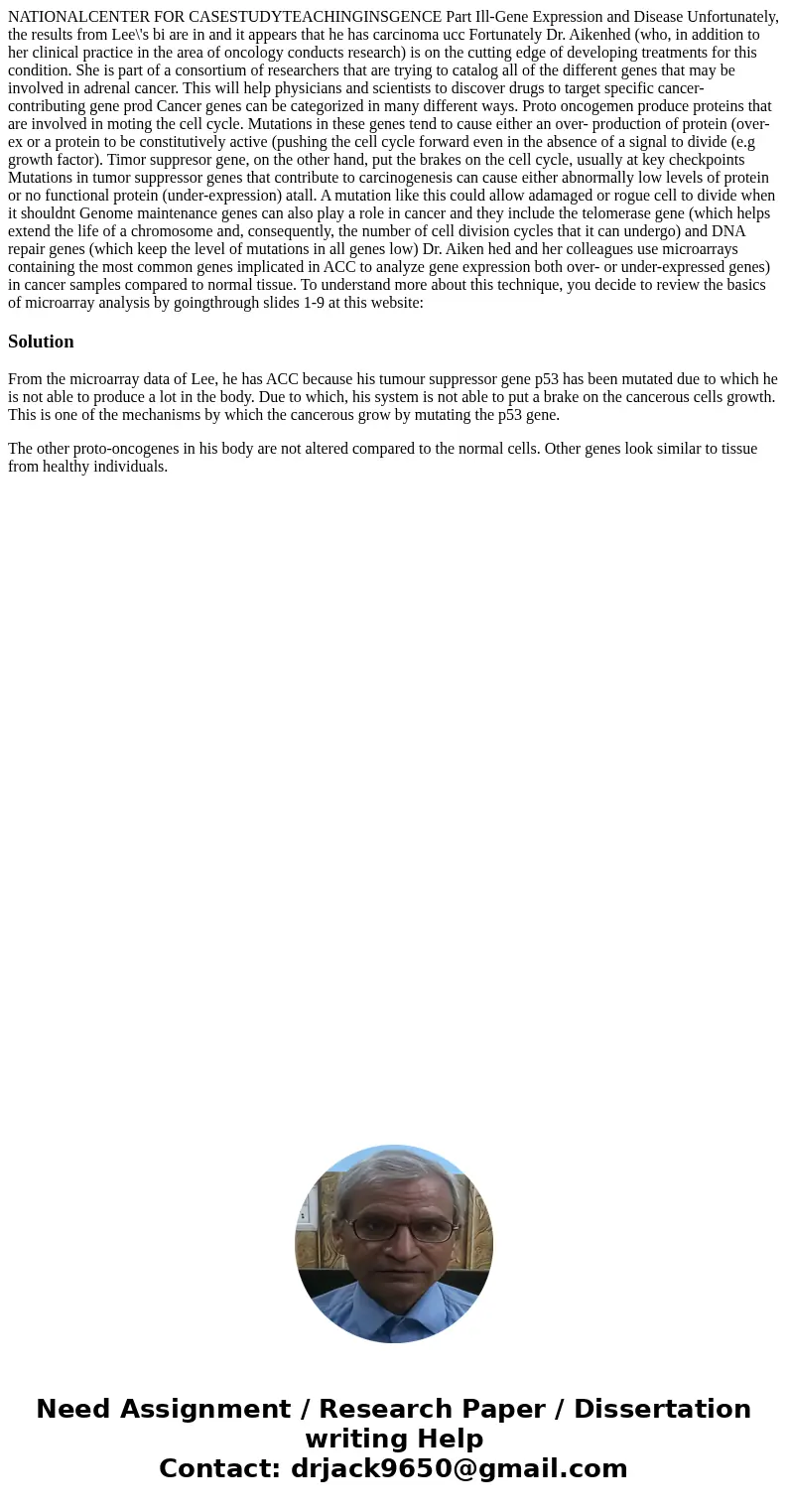NATIONALCENTER FOR CASESTUDYTEACHINGINSGENCE Part IllGene Ex
NATIONALCENTER FOR CASESTUDYTEACHINGINSGENCE Part Ill-Gene Expression and Disease Unfortunately, the results from Lee\'s bi are in and it appears that he has carcinoma ucc Fortunately Dr. Aikenhed (who, in addition to her clinical practice in the area of oncology conducts research) is on the cutting edge of developing treatments for this condition. She is part of a consortium of researchers that are trying to catalog all of the different genes that may be involved in adrenal cancer. This will help physicians and scientists to discover drugs to target specific cancer-contributing gene prod Cancer genes can be categorized in many different ways. Proto oncogemen produce proteins that are involved in moting the cell cycle. Mutations in these genes tend to cause either an over- production of protein (over-ex or a protein to be constitutively active (pushing the cell cycle forward even in the absence of a signal to divide (e.g growth factor). Timor suppresor gene, on the other hand, put the brakes on the cell cycle, usually at key checkpoints Mutations in tumor suppressor genes that contribute to carcinogenesis can cause either abnormally low levels of protein or no functional protein (under-expression) atall. A mutation like this could allow adamaged or rogue cell to divide when it shouldnt Genome maintenance genes can also play a role in cancer and they include the telomerase gene (which helps extend the life of a chromosome and, consequently, the number of cell division cycles that it can undergo) and DNA repair genes (which keep the level of mutations in all genes low) Dr. Aiken hed and her colleagues use microarrays containing the most common genes implicated in ACC to analyze gene expression both over- or under-expressed genes) in cancer samples compared to normal tissue. To understand more about this technique, you decide to review the basics of microarray analysis by goingthrough slides 1-9 at this website: 
Solution
From the microarray data of Lee, he has ACC because his tumour suppressor gene p53 has been mutated due to which he is not able to produce a lot in the body. Due to which, his system is not able to put a brake on the cancerous cells growth. This is one of the mechanisms by which the cancerous grow by mutating the p53 gene.
The other proto-oncogenes in his body are not altered compared to the normal cells. Other genes look similar to tissue from healthy individuals.

 Homework Sourse
Homework Sourse